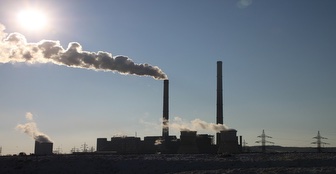 |
|

ICOS Switzerland is funded for the next project phase
ICOS Switzerland (Integrated Carbon Observation System), has received funding from the Swiss National Foundation for the next project phase, which aims at harmonized and long-term measurements of Europe’s greenhouse gas balance.
|
|

Treibhausgas: Zwisch-enziele für Gebäude und Industrie erreicht
Die Treibhausgasemissionen beliefen sich 2015 auf 48,1 Millionen Tonnen CO2-Äquivalente, 0,6 Millionen Tonnen weniger als 2014.
|
|

Übereinkommen von Paris und verminderte Klimafolgen in der Schweiz spürbarFür die Schweiz ist ein gemeinsames globales Handeln gegen den Klimawandel besonders wichtig, da sie vom Temperaturanstieg überdurchschnittlich stark betroffen ist. In der Schweiz fallen die Auswirkungen beim Erreichen des Pariser Zwei-Grad-Ziels deutlich geringer aus als beispielsweise in einer um drei Grad wärmeren Welt.
|
 |
